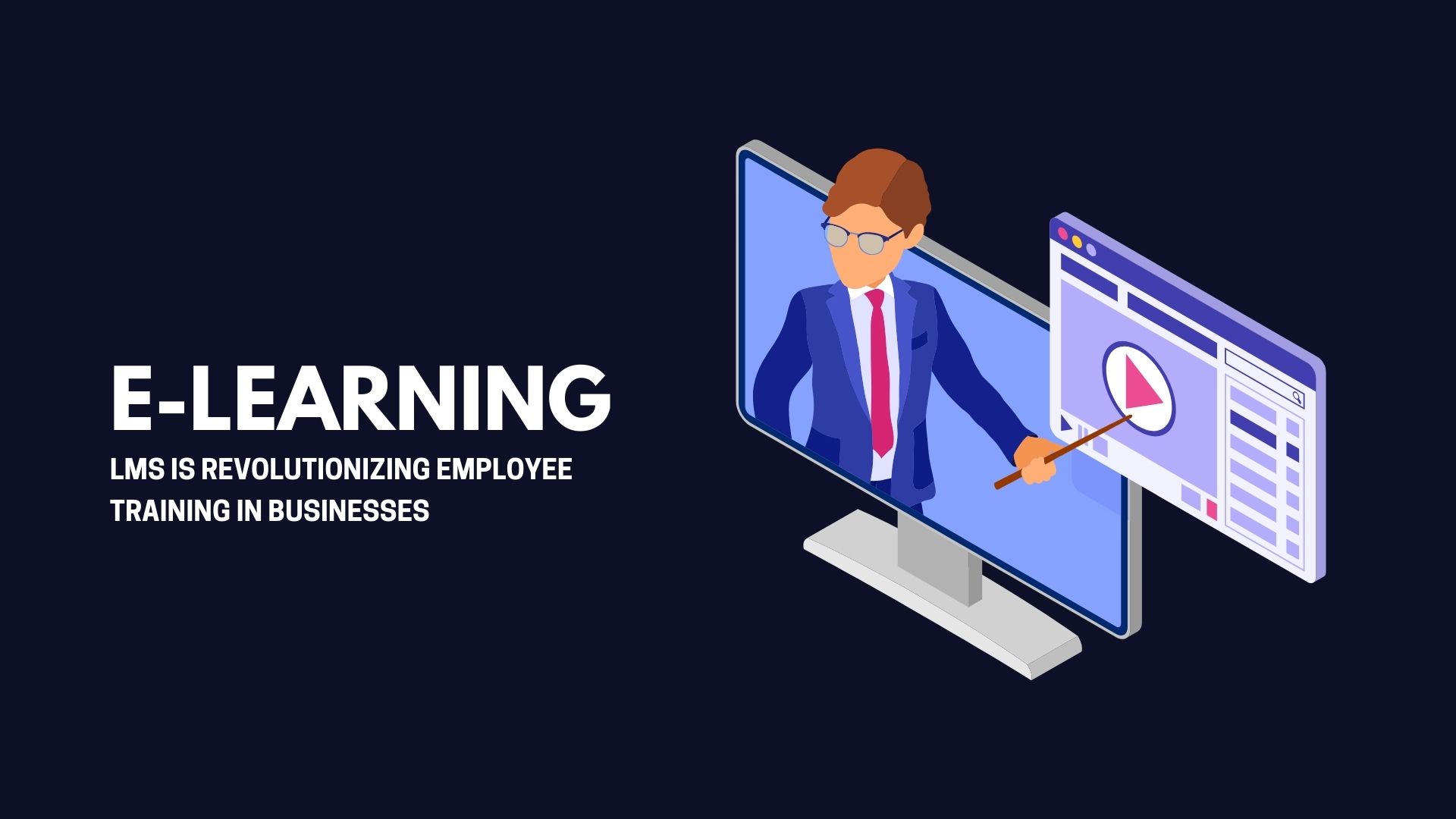The Rise of E-Learning: How LMS is Revolutionizing Employee Training in Businesses

Page Contents
Traditional employee training, often conducted in classroom settings, has been effective yet comes with limitations such as rigidity in scheduling and a one-size-fits-all approach. E-learning, facilitated by learning management systems (LMS), emerges as a solution, offering flexible, personalized, and scalable training. LMS platforms, designed to manage, deliver, and track digital training, provide an avenue for organizations to transcend geographical and time constraints inherent in conventional training methods.
They allow for real-time feedback and assessment, creating an interactive learning environment. The transition to LMS-powered digital training is becoming a cornerstone in modern corporate training strategies, paving the way for enhanced employee development in the contemporary business landscape.

Historical Context
The journey of e-learning commenced with distance education, which dates back to the 1840s when Isaac Pitman taught shorthand via correspondence. The evolution gained pace with the advent of the internet, transitioning into online learning in the 1980s.
The 2000s saw the emergence of learning management systems, providing a structured platform for online learning, which made a significant shift from traditional to digital learning methods.
Advancements in Technology
The rise of the internet and cloud technologies has been instrumental in propelling e-learning forward. Cloud-based LMS solutions are scalable, accessible, and cost-effective for organizations.
The proliferation of smart devices has even further facilitated mobile learning, allowing learners to access educational materials anytime, anywhere. These technological advancements have not only made learning more accessible but have also enriched the learning experience through interactive and engaging digital content.
Definition and Core Functions
A learning management system is a software application that enables the planning, delivery, management, and tracking of learning content and resources. It is designed to enhance the learning experience by providing a centralized and automated platform.
The core functionalities of an LMS encompass content delivery, which includes the distribution of courses and training materials; tracking of learner progress and performance; reporting on learner and organizational level metrics; and assessment through quizzes, tests, and assignments to gauge learner understanding and competency.
Benefits of Implementing LMS
- Cost-effectiveness: LMS reduces the costs associated with traditional classroom training, such as venue hire, instructor fees, and printed materials. Additionally, it saves time and resources by automating administrative tasks and reporting.
- Personalized learning paths: LMS allows for the creation of personalized learning paths to cater to the individual learning needs, preferences, and pace of each learner, thereby enhancing engagement and retention.
- Real-time tracking and feedback: Through real-time tracking, organizations can monitor learner progress, provide immediate feedback, and identify areas of improvement, which are crucial for learner development.
- Scalability and flexibility: LMS can easily adapt to the growing needs of an organization, be it expanding user base or evolving training content. Its online nature provides the flexibility for learners to access the material anytime, anywhere, fostering a culture of continuous learning and development.

Future Trends
AI and Machine Learning in LMS
The integration of artificial intelligence (AI) and machine learning (ML) in LMS is poised to take e-learning to new heights. Predictive analytics powered by AI can help in identifying learning patterns, predicting learner performance, and proactively addressing challenges, thereby aiding in performance improvement. Moreover, ML algorithms can analyze learner data to create personalized learning experiences, tailoring content to meet individual learning needs and preferences, which in turn enhances engagement and retention.
Mobile Learning
The rise of mobile technology is fostering a growing trend of mobile learning. This trend is set to continue with better integration of LMS on mobile platforms, enabling on-the-go training and support. Mobile learning provides the flexibility for learners to access training materials anytime, anywhere, making learning a continuous and convenient process.
Virtual Reality and Augmented Reality
The integration of VR and AR in e-learning is creating immersive learning experiences that are engaging and effective. These technologies provide a three-dimensional learning environment, offering real-world simulations for hands-on training. By replicating real-world scenarios, VR and AR allow learners to practice skills in a risk-free and interactive environment, thereby enhancing the learning experience and better preparing employees for real-world tasks.
The fusion of LMS with VR and AR is anticipated to revolutionize practical training, providing a more engaging and effective learning platform.
Conclusion
The journey from traditional classroom training to the dynamic realm of e-learning, propelled by learning management systems, underscores a pivotal shift in modern employee training methodologies. LMS, with its core functionalities of content delivery, tracking, and assessment, has effectively addressed the rigidity and geographical constraints of traditional methods. The technological tide, marked by the advent of the internet, cloud solutions, and smart devices, has not only facilitated this transition but also enhanced the learning experience.
Looking ahead, the infusion of AI and machine learning into LMS is set to further refine personalized learning paths, making training more engaging and tailored to individual needs. Mobile learning continues to gain traction, offering on-the-go training solutions, while the integration of virtual and augmented reality promises immersive, real-world simulation for hands-on training. These evolving trends, rooted in LMS, are not only reshaping the landscape of corporate training but also fostering a culture of continuous learning and development, crucial for navigating the challenges of the contemporary business landscape.

Wayne Kernochan has been an IT industry analyst and auther for over 15 years. He has been focusing on the most important information-related technologies as well as ways to measure their effectiveness over that period. He also has extensive research on the SMB, Big Data, BI, databases, development tools and data virtualization solutions. Wayne is a regular speaker at webinars and is a writer for many publications.